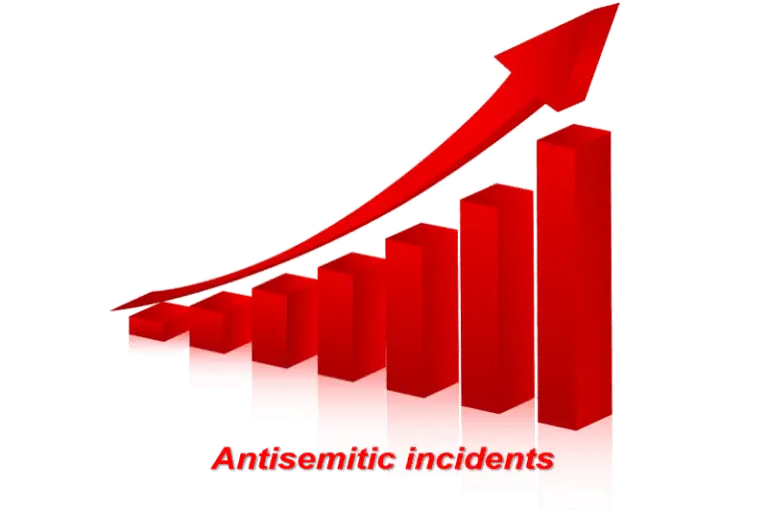A new analysis of antisemitism on Twitter released on Wednesday found that external factors shaped the types of hate-filled remarks on the platform, from COVID-19 conspiracy theories prompting greater use of classic antisemitic tropes to Israeli military conflicts leading to increased anti-Zionist rhetoric.
The study, which evaluated approximately 100 million tweets from Jan. 1, 2020, to June 30, 2022, was presented in Israel’s Knesset on Wednesday as part of the launch of the parliament’s Caucus for Israel-American Jewry Relations. Both the caucus and the study were supported by the Ruderman Family Foundation.
The report, dubbed “The Polarization Pendulum,” was conducted by the Network Contagion Research Institute, which investigates “the spread of hostile ideological content,” according to its website.
“The research also found that antisemitic and anti-Zionist tropes share virtually identical themes, such as bloodlust, dominance, covert control, and replacement,” according to a statement from the Ruderman Family Foundation. “This similarity further highlights the connection between the two types of tropes and their impact on public perception and discourse.”
The researchers searched for different keywords in order to separate tweets into the categories of “antisemitic” and “anti-Zionist.” The report adds that in accordance with the International Holocaust Remembrance Alliance’s working definition of antisemitism, “we assess that the anti-Zionist campaigns and narratives on Twitter are largely antisemitic, on several grounds: a clear double standard against Israel, identical hateful tropes that are being used both by antisemites and anti-Zionist, and strong correlation to real-world antisemitic incidents.”
Tweets that were deemed antisemitic used terms like “new world order” and “globalist,” while anti-Zionist tweets used keywords like “apartheid” and “colonial.”
The study found that Israel was 10 times more likely to be accused of human rights abuses than any other country, including China, Iran, Russia and North Korea.
The researchers calculated that from Jan. 1, 2020, to Jan. 20, 2021, just over a year, there were approximately 12,500 “antisemitic tweets” each day and roughly 2,000 “anti-Zionist” tweets each day. From Jan. 20, 2021, to June 30, 2022, just over a year and a half, there were approximately 17,000 “antisemitic” tweets and 7,000 “anti-Zionist” tweets per day.
The researchers pegged this increase in the number of “anti-Zionist” in 2021 and early 2022 to a number of events that occurred during that period, including the May 2021 conflict between Israel and the Hamas terror group in the Gaza Strip and the release of Amnesty International’s report accusing Israel of apartheid in February 2022.
“The research found an over 500% surge from baseline in anti-Zionist tropes per day at such key moments,” the authors wrote.
Similarly, in the 2020-2021 period, the researchers found a more than 500% increase in antisemitic tropes related to the outbreak of the COVID-19 pandemic and the Jan. 6, 2021, storming of the U.S. Capitol.
The report also noted that the 2020-2021 period, which saw surges of antisemitic tropes, occurred under a Republican White House, while the 2021-2022 rise in anti-Zionist tropes occurred under a Democratic White House.
The authors called for further research into these issues and ways to combat them. They added that their report “demonstrates how both Jews and Israel, as the Jewish state, are being targeted under similar narratives and themes, which evidently can shed light on the reason why the double standard against Israel on Twitter is so severe. The international community must address that accordingly.”






